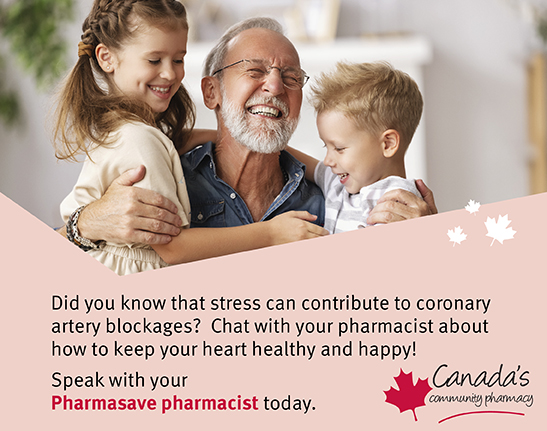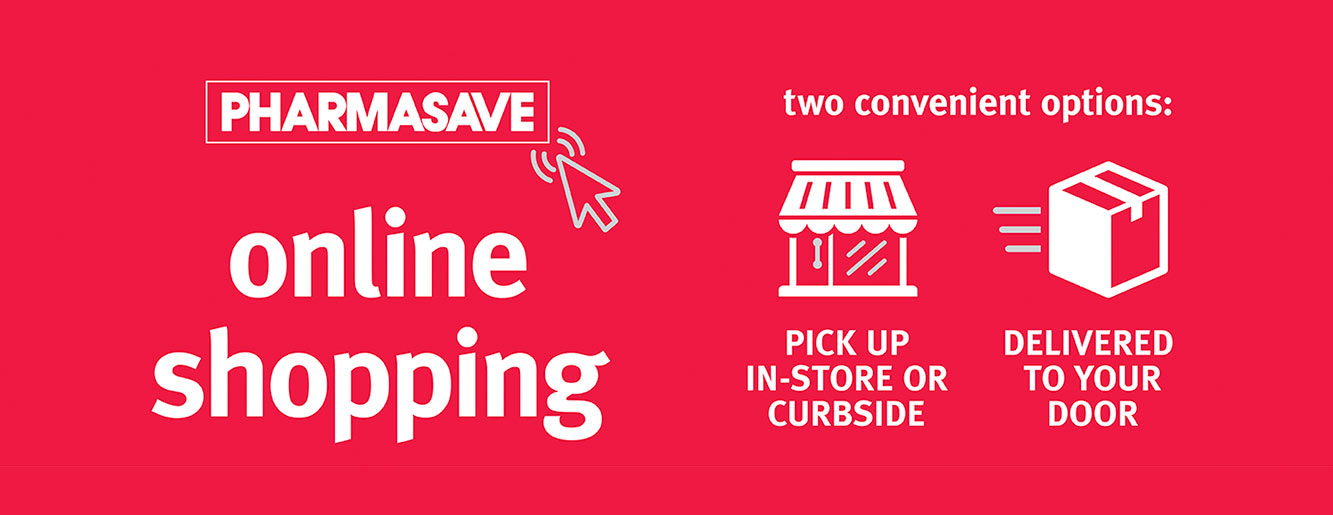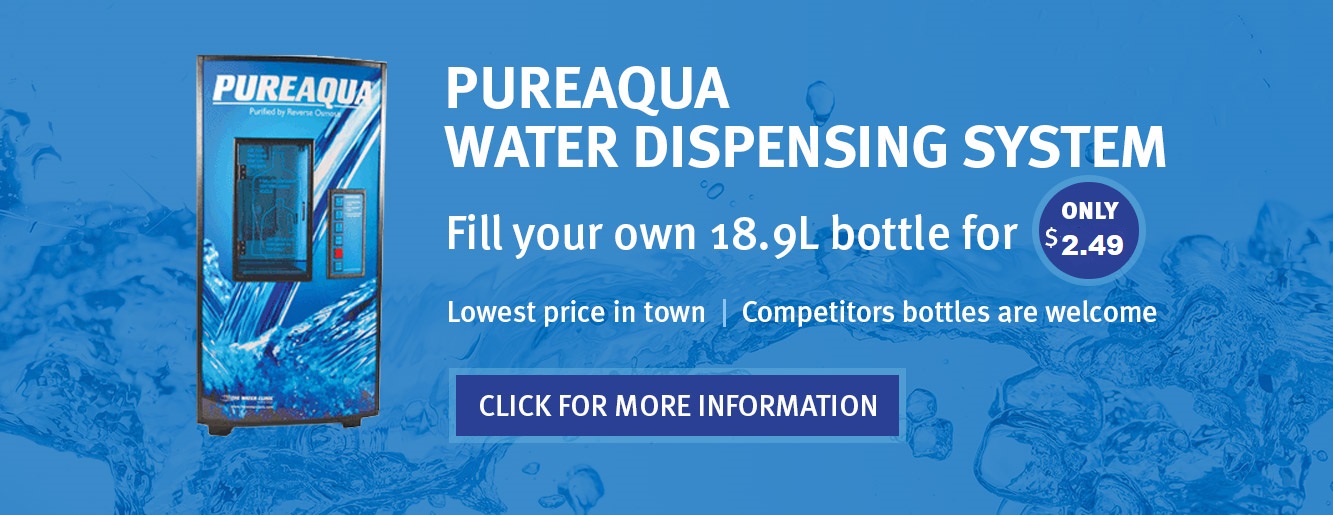
February – Heart Health
The Skinny on Cholesterol
Cholesterol is a fat-based substance found in the bloodstream and the body’s cells. Cholesterol is essential for good health: it builds and repairs cells, protects nerve fibres, and is used to produce certain hormones and bile acids. We get it in two ways: the liver produces it, and it is contained in some of the foods we eat, including meat, chicken, fish, eggs, and dairy products. A healthy daily intake of cholesterol is about the amount found in a single egg. Most of us take in more than that, which is where problems can begin.
When cholesterol moves through our blood, it joins up with proteins to make molecules known as lipoproteins. “Bad” cholesterol, or low-density lipoproteins (LDL), can build up on the walls of blood vessels, where it can block and damage arteries. This can eventually cause heart disease and stroke. But there’s also “good” cholesterol, high-density lipoproteins (HDL), which clear away the dangerous, “bad” type of cholesterol.
Although LDL is the one to worry about, getting accurate readings of both kinds is essential. High levels of “bad” cholesterol and low levels of “good” cholesterol mean you could be at risk of heart disease.
Triglycerides are not a type of cholesterol but are another type of fat found in the body. Like LDL, high triglycerides are associated with heart disease. Triglyceride levels are often measured at the same time as cholesterol levels.
Many factors determine whether your LDL-cholesterol is high or low, including:
- diet
- weight
- level of physical activity
- age (cholesterol levels rise with age)
- sex (men have higher cholesterol)
- alcohol consumption
- heredity
- some medical conditions, such as diabetes, hypothyroidism, liver disease, and kidney disease
To help lower cholesterol levels:
- Enjoy a diet high in whole-grain foods, vegetables, fruits, and legumes.
- Replace saturated fats (found in meat, full-fat dairy products, shortening, and tropical oils such as palm and coconut oil) with monounsaturated fats (found in olives, olive oil, nuts, and avocado) and polyunsaturated fats (found in vegetable oils, nuts and seeds, fish, and wheat germ).
- Drink alcohol in moderation (for men, no more than 3 drinks per day on most days, up to a maximum of 15 drinks per week; for women, no more than 2 drinks per day on most days, up to a maximum of 10 drinks per week).
- Enjoy regular physical activity (such as walking, swimming, biking, or gardening) for at least 2½ hours per week.
- Don’t smoke.
- Maintain a healthy body weight.
- Take cholesterol medications (if necessary) as prescribed by your doctor.
Regardless of what your cholesterol level is, the above suggestions are recommended for everyone for good heart health!
Should you have your cholesterol levels tested?
It is recommended that you have your doctor check your cholesterol levels and assess your risk of heart disease every 5 years once you are over the age of 40. Some conditions require testing of cholesterol levels regardless of age; these include but are not limited to:
- diabetes
- family history of heart disease
- hypertension
- currently smoking
- obesity
- chronic kidney disease
- inflammatory bowel disease
- chronic obstructive pulmonary disease
Your doctor may have provided your cholesterol readings as a ratio of total cholesterol to HDL. Contact your doctor or pharmacist if you have questions about managing your cholesterol.
Ask Your Pharmacist
Question: I’ve been hearing a lot about cholesterol levels from my family lately. What do I need to know to stay healthy?
Answer: While it’s true that family history may increase your risk of elevated cholesterol levels, you can stay on top of your cholesterol levels with healthy lifestyle changes and diet choices. Here are a few facts to keep in mind when thinking about your cholesterol levels.
Cholesterol targets are the ideal cholesterol levels which reduce your risk of developing heart disease and its complications. Your Pharmasave pharmacist can talk to you about recommended target levels and how to reach them.
Low-density lipoprotein (LDL) is the “bad cholesterol” that clogs your arteries and increases your risk of heart attacks and stroke. The goal is to keep your LDL level low and within target, regardless of your risk factors. Dietary fibers, quality essential fatty acids, and regular physical activity help keep LDL levels within target.
High-density lipoprotein (HDL) is the “good cholesterol” that protects you against heart disease and stroke. High levels of HDL help to remove some of the LDL (bad cholesterol) from your arteries and carry it back to your liver where it is broken down and eliminated from your body.
The best thing you can do to get started is to understand your family history and what your LDL and HDL levels are. Your Pharmasave pharmacist can help you understand your cholesterol levels and what to do if you are not within the recommended targets.
Speak to your Pharmasave pharmacist today.
Health Tip
Physical activity has many beneficial effects on both your body and your mind. There are many reasons to be active year-round and trying a variety of different kinds of activities will allow you to enjoy a wide range of benefits.
- Weight bearing activities improve your muscle tone and protect your bones
- Regular physical activity increases your energy and your concentration
- Cardio activities improve your circulation
- Gentle torso twisting improves flexibility, mobility of your spine and increases core strength
All material © 1996-2013 MediResource Inc. Terms and conditions of use. The contents herein are for informational purposes only. Always seek the advice of your physician or other qualified health provider with any questions you may have regarding a medical condition.



